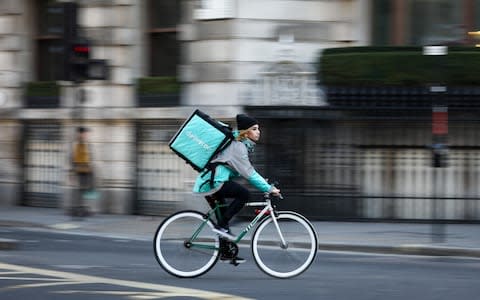Delivery firm collapse leaves 1,800 couriers out of pocket

Thousands of delivery drivers have been left out of pocket after the collapse of food delivery company Jinn earlier this year. Administration documents reveal nearly 1,800 bike couriers were owed sums of up to £700 by the start-up.
Jinn had debts of almost £6.8m in total to riders, staff and investors when it collapsed in October despite raising millions of pounds in venture funding earlier in the year.
The Sunday Telegraph understands the London start-up made preliminary approaches to Deliveroo, Amazon, Just Eat and Addison Lee at the last minute in an attempt to salvage its app and assets, but these fell through. Jinn’s primary creditors include STE Capital, a fund which pumped $10m (£7.4m) into it in May this year, which is owed £5.2m.

The start-up had raised a total of $20m when it collapsed, but only had assets of £186,873. Jinn served as a courier service and on-demand app designed to offer almost any product, from McDonalds to non-food items like beauty products.
But operating in a saturated London market, the company was forced to close just three years after launching, as rivals like Deliveroo and UberEats strengthened their dominance.
Deliveroo has since raised an additional £285m in venture funding. Founded as a local delivery outfit by entrepreneurs Mario Navarro and Leon Herrera, Jinn expanded rapidly to other UK cities including Glasgow, Edinburgh, Birmingham, Manchester and Leeds.

In January, Jinn was hit by complaints from couriers as drivers claimed they had not been receiving the minimum wage, instead being paid per delivery. In August, the troubled start-up was forced to slash staff numbers down from nearly 100 to just 20 as it pulled back from other national markets to London, while Mr Herrera quit his role at the company.
The start-up filed for administration months later after failing to secure more capital from existing investors, appointing administrators Moorfields on October 19. Following its collapse, more than 400 restaurants and other local partners were owed hundreds of thousands of pounds by Jinn. The company also owed £111,000 to HMRC.

 Yahoo Finance
Yahoo Finance 